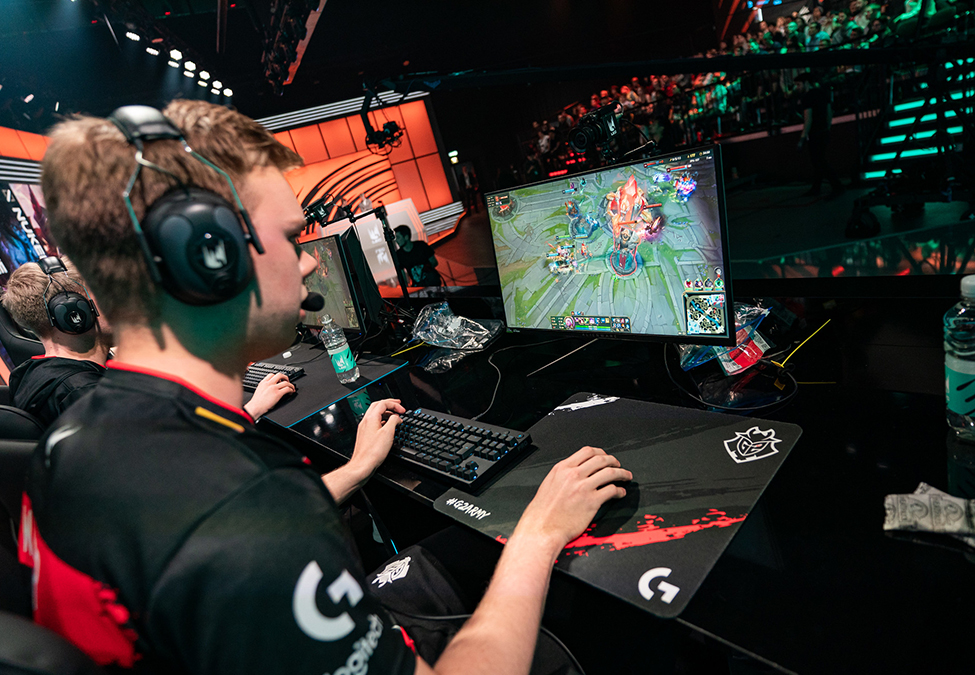With coronavirus wreaking havoc in traditional sports, resulting in the postponement of effectively every event for the foreseeable future, esports has stepped into the spotlight as a prominent source of entertainment. We know that plenty of sports fans add to the excitement of events by placing some bets, and that’s not too different in the world of esports.
Considering the fact that the Nevada Gaming Control Board has recently approved betting on both ESL Pro League: North America and ESL Meisterschaft, this down period for much of the world could lead to the most activity in esports betting to date.
To better understand the average esports bettor and their tendencies, esports betting platform LOOT.BET utilised its internal statistics and an email poll of its customers. Here’s what was discovered.
They’re young, career-driven, and single

As you’d expect considering the general esports audience, esports bettors tend to be rather young. 78 percent of LOOT.BET’s users are aged 18-25, 16 percent are between 26-30, 5 percent of people are 31-40 years old, and only one percent are 41 or older.
Interestingly, bettors from Western countries are an average age of 24, whereas in the CIS region the average age is 21. When it comes to occupation, the average esports bettor from the West is a novice specialist or junior manager. The average esports bettor in the CIS region, however, is a university student. In both cases, they’re unmarried and without children.
LOOT.BET’s data concludes that 95 percent of esports bettors in 2018 were male, though this declined to 94 percent in 2019.
They have little interest in traditional gambling

LOOT.BET’s research identifies that 64 percent of esports bettors exclusive place money on esports, and 67 percent are happy to bet on more than one titles. With that in mind, it’s somewhat surprising that only 24 percent of bettors have occasionally wagered on major sporting events and 12 percent systematically bet on traditional sports.
With esports bettors being young, it’s not a shock to see that they are much less likely to gamble at online casinos than those who gamble on traditional sports – sitting at just 3 percent.
RELATED: LOOT.BET teams up with Esports Integrity Commission
They’re clued up, engaged, and passionate

A pleasant discovery for us at Esports Insider is that almost all esports bettors following industry news, with 54 percent using dedicated publications and forums. However, 42 percent finding the latest developments through social media.
When it comes to their lifestyle and interests, the average bettor is engaged with video games that aren’t esports, regularly tune in to streams, and enjoy cosplay. They’re attuned to video and music content, follow traditional sports, and love both travel and technology.
Paul Brel, Head of Communications at Livestream, LOOT.BET’s operating company, commented on the findings: “The difference between esports bettors and traditional bookmakers’ clients is huge, and the matter is not just – and not even so much – in the age gap which in itself implies certain distinctions.
“Esports fans breathe cutting-edge technologies; they are very mobile, yet so involved with the community; they are more likely to rely on their knowledge and skills rather than on luck; for them, esports is not just a hobby but a lifestyle – which you wouldn’t say about a regular classic sports bettor. We believe that only those operators who understand this and try to find an approach to this specific audience, which is very new to the betting industry, have a chance to succeed in the esports betting market.”
RELATED: Investing in esports betting: the insider’s opinion
They love live & mobile betting

When it comes to observing betting trends in esports, LOOT.BET is keeping a close eye on the growth of live betting and the adopting of mobile platforms.
From the start of 2019 to the end, live bets grew from 52 percent to 75 percent and mobile traffic rose to almost 70 percent from 50 percent.
They are spending more money, more often

Another trend identified by LOOT.BET’s statistics and questioning is that esports bettors are not only spending more and more, but they’re betting more frequently.
In 2019, the average amount of bets per user on a month-by-month basis grew by 11 percent. Counter-Strike: Global Offensive had the biggest increase at 15 percent, though League of Legends and Dota 2 enlarged by 10 percent and 6 percent respectively.
Brel spoke on this trend: “We associate the simultaneous rise in the frequency and size of bets with several factors. Firstly, esports betting is becoming a key hobby, on which one is ready to spend significant money, for more and more people. Secondly, the esports audience’s trust in betting is increasing, and so is their willingness to risk larger sums.
“And naturally, the rise is determined by the extension of the noteworthy matches pool and development of betting lines – which refers to the whole esports betting industry. There is a bold assumption that in 10-20 years, esports will catch-up with classic sports by volumes of bets, and, considering the foregoing as well as the fast esports audience expansion, we treat this forecast as an eligible one.”
Disclaimer: This is a sponsored piece for LOOT.BET

